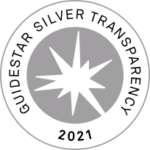Last Tuesday, I felt like I was waiting with bated breath as I kept hitting “refresh” on the Supreme Court website. Finally, that afternoon, transcripts of two oral arguments were posted, and I started to read.
As many of us are aware, last Tuesday, the U.S. Supreme Court heard two oral arguments in three major cases that will have sweeping implications for the employment rights of members of the LGBTQ+ community.
The first two cases, Altitude Express Inc. v. Zarda and Bostock v. Clayton County, were combined into one oral argument. In these cases, two cis gay men argued that they had been fired from their jobs because of their sexual orientation. The third case, R.G. & G.R. Harris Funeral Homes vs. EEOC, involved the story of Aimee Stephens, a trans woman who was fired by her boss due to her transgender status.
All three cases argue that the existing federal civil rights protections in Title VII should apply to LGBTQ+ employees. The plain text of the law prohibits employment discrimination on the basis of “sex,” but does not specifically address discrimination based on sexual orientation, gender identity, or gender expression. As a result, there have been inconsistencies across the country regarding how discrimination “on the basis of sex” should be interpreted by the courts and by federal agencies charged with enforcing federal laws prohibiting discrimination, such as the Equal Employment Opportunity Commission (EEOC).
As I read through the transcripts of the oral arguments on Tuesday afternoon, I was struck by the skill of the attorneys arguing on behalf of the Plaintiffs. The attorneys focused their arguments significantly on the 1989 Supreme Court case Price Waterhouse v. Hopkins, in which the Court held that gender stereotyping in and of itself is a form of sex discrimination under Title VII.
The other thing that most struck me about the content of these oral arguments was how close to home they felt. In both arguments, the attorneys found themselves in a familiar position for both attorneys representing members of the LGBTQ+ community and for LGBTQ+ clients: they needed to educate the court.
Across both oral arguments, the Justices posed multiple questions related to bathroom use and dress codes.
In Bostock, Attorney Pam Karlan worked to bring the attention back to the matter at issue in the case: employment discrimination. While it is common for the Justices to ask questions about how a ruling in a given case may impact other potential future cases or areas of law, Ms. Karlan attempted to contextualize the bathroom issue and return the attention of the Justices to the facts of her case, stating “The bathroom issue has been around since the beginning of Title VII. Title VII has a special provision in 703(a)(ii) that says, when you segregate people, the question is whether that segregation denies them employment opportunities. And it is hard to see, quite honestly, how requiring men to use a men’s room and women to use a women’s room denies them employment opportunities. She further clarified the issue for the Court by stating: “you’d be better advised to ask the question to someone who is representing someone who is transgender. I am representing someone who is gay.”
In Ms. Stephens’ case, her attorney, David Cole, was tasked with educating the court right off the bat. He was asked a succession of questions by Chief Justice Roberts related to the use of bathrooms and dress codes. Specifically, he asked, “In other words, if the objection of a transgender man transitioning to [a] woman is that he should be allowed to use, he or she, should be allowed to use the women’s bathroom, now, how do you analyze that?” He was, ostensibly, referring to Ms. Stevens, a trans woman. Chief Justice Roberts also referred to the “biological sex” of transgender people.
David Cole handled this masterfully and took time both to advocate for his client’s position and to explain appropriate terms to the court, including gently correcting Chief Justice Roberts by utilizing the term “sex assigned at birth.” He also highlighted a very effective definition of discrimination, stating that it is “differentiation with injury.”
Despite some of the highlights from both Ms. Karlan and Mr. Cole’s arguments, the Court continued to concentrate on bathroom use. However, when Alliance Defending Freedom Attorney John Bursch, who was representing Ms. Stephens’ former employer, discussed the hiring of trans women at women’s shelters, Justice Breyer immediately shot down this argument as a “parade of horribles.”
As my reading of the arguments continued, I found myself frustrated. It seemed to me that it was necessary to convey to the Justices that trans people are people – people who have jobs, who go to work, and who all too often encounter discrimination while they’re there.
The need to continue to educate the judicial system about issues facing the LGBTQ+ community, and particularly the transgender community, is not a one-day challenge. Regardless of the outcome of these cases, ensuring that LGBTQ+ folk are appropriately represented in court is an ongoing process. It requires collaboration, active listening, and identifying systemic barriers that prevent access to justice. It also requires further legal action and advocacy. Though Title VII provides employment protections for some employees, many employers are exempt from these protections. Additionally, Title VII does not provide discrimination protection in the areas of housing or public accommodations. Local and state law initiatives (such as the Ohio Fairness Act) are now more important than ever.
It is unlikely, in my opinion, that we will know the results of these cases until next June. However, following what has been a difficult and anxiety-inducing week for many of us, I have taken solace in a portion of Mr. Cole’s argument: “I say that recognizing that transgender people have a right to exist in the workplace and not be turned away because of who they are does not end dress codes or restrooms. There are transgender lawyers in this courtroom today.”
The transcripts of both oral arguments are free to the public and are accessible here:



 @
@